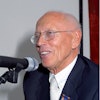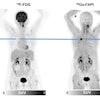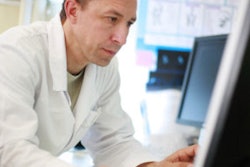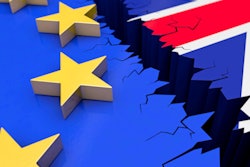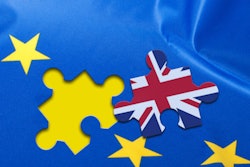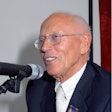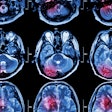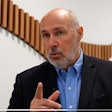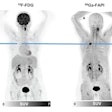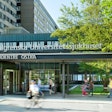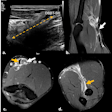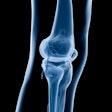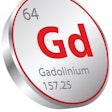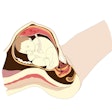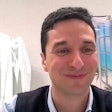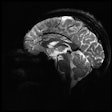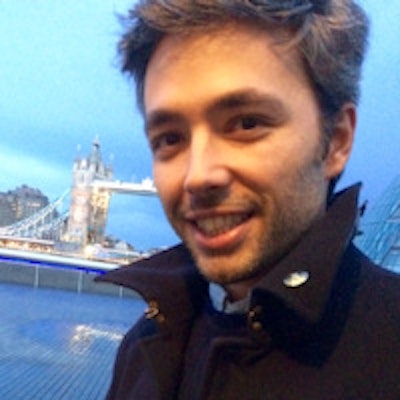
The U.K. decision to leave the European Union (EU) has left in its wake great uncertainty, including among the 280 or so radiologists from other EU countries who are working in the U.K. Their future now hangs in the balance, they said.
Consultant neuroradiologist Dr. Tiago Baptista, who has worked at the Oxford University Hospitals National Health Service (NHS) Foundation Trust for two years, said the Brexit (or British exit) vote has brought a new sense of anxiety to the department, where five of the nine neuroradiologists are from continental Europe.
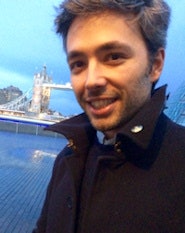 An exodus of EU nationals would be catastrophic for the NHS, Dr. Tiago Baptista said.
An exodus of EU nationals would be catastrophic for the NHS, Dr. Tiago Baptista said."I'm concerned for my future here," he told AuntMinnieEurope.com. "One comes to the U.K. for stability and also because it is part of the EU. If these two elements change now, then what binds us here when there are other countries in Europe that have the characteristics we first sought in the U.K.?"
"I can't see some of my Portuguese colleagues coming to the U.K. at present. There are working opportunities in Germany, Sweden, Netherlands, and Norway which may now seem like a better prospect to young radiologists," he added.
The lack of clarity over what Brexit will mean for EU nationals is already enough of a reason to not only hamper recruitment, but also trigger relocation for those European doctors and dentists already in Britain, and this exodus would be disastrous for the NHS, Baptista said.
Furthermore, he senses that European doctors may now question the faith they had in the patient-doctor relationship. While he has always been made to feel welcome, he finds it unsettling to realize so many of his patients may not want him in the U.K.
"Much of the vote was about immigration policy. We as immigrant doctors may now wonder whether we are treating people who don't want us to treat them, or ask ourselves if our patients even trust us. This might be another reason to leave," he said. "I've never felt that my patients were concerned about my nationality or that they would prefer a British doctor, but we are in panic mode and Brexit begs the question: Are we welcome here?"
Xenophobic imagery
Another senior radiologist from a different EU country who has worked in the U.K. for many years referred to the rising dissatisfaction with the way the referendum was conducted and distaste over the "Leave" group's media campaign, perceived by many to have used xenophobic propaganda and imagery.
"EU nationals who are not from the U.K., Ireland, Cyprus, or Malta could not take part in the referendum last Thursday. I have paid my taxes here for over 15 years but was not allowed to vote," the radiologist said. "We don't know exactly how it will impact us yet, but will it make me and others more likely to leave the U.K.? Yes. And will it make recruitment from Europe more difficult? Definitely."
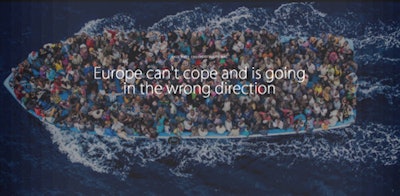 An example of the type of propaganda used during the campaign. Source: Leave website.
An example of the type of propaganda used during the campaign. Source: Leave website.The "Remain" camp is promoting a petition for a second referendum based on a lack of turnout for the first and the slight majority won by "Leave" in a vote that divided the country by 51.9% to 48.1%, representing a difference of 1,269,501 votes.
Whatever the outcome, Brexit looks set to influence radiological practice, given that new figures from the Royal College of Radiologists (RCR) reveal that 8.4% of senior radiologists in the U.K. (280/3,318) obtained their primary medical qualification elsewhere in the EU. Overall, around 28% (921/3,318) of senior radiologists in the U.K. are international medical graduates, ranging from 40% of the senior radiologist workforce in the northeast of England to 15% in South Central England.
"Figures on international medical graduates do not provide absolute certainty that all these radiologists are international or foreign. It is quite possible that some are British but studied for their medical degree outside of the U.K., and that some international medical graduates have since gained British citizenship," stated Don Liu, the RCR's data, audit, and surveys manager. "The figure of 28% is similar to the share of foreign-trained doctors (28.7%) in the U.K. as given by the OECD [Organization for Economic Cooperation and Development]."
Uncertainties over freedom to travel and work within Europe, and the timeframe in which any changes will be felt, could make the U.K. a less attractive prospect for foreign doctors. How the radiological community and the U.K. government deals with the political fog, both in the short and long term, will largely determine whether NHS radiologist shortages will grow in the coming 24 months.
RCR's strategy
On Monday, the RCR issued a formal statement on the referendum. Pledging ongoing collaboration with international organizations and a commitment to encouraging and welcoming non-U.K. radiologist recruits to U.K. hospitals, the RCR hopes to allay initial fears that the door will close to foreign doctors wishing to relocate.
"The RCR is not a political organization. Its priority is to improve the practice of radiology in the U.K. Currently, the biggest problem radiology patients face is the delay in reporting and Brexit doesn't change this. Our need for trained radiologists remains as great now as it was before the referendum," said RCR Vice President, Faculty of Clinical Radiology, Dr. Richard FitzGerald. "The bottom line is more radiologists are needed and welcome in Britain."
He outlined that 45 million patients go through U.K. radiology departments every year, and 230,000 patients wait for more than a month to get their reports. Of these patients, 12,000 will have undergone CT and MR scans. This is unacceptable given that some of these patients will have their diagnoses for cancer, fracture, or joint infection significantly delayed, according to FitzGerald.
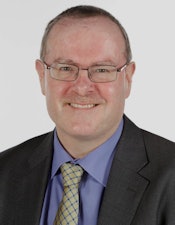 The RCR is not a political organization, according to Dr. Richard FitzGerald.
The RCR is not a political organization, according to Dr. Richard FitzGerald."Besides the impact on clinical outcome, the mental anguish caused by obliging patients to wait so long for either good or bad news affects so many. We need radiologists urgently whether from the EU, or elsewhere in the world, to fill the more than 300 consultant radiologist vacancies currently available in the U.K. -- and that figure is an underestimate," he noted.
Over the coming months, decisions must be taken on how and if Brexit will actually happen. First, article 50 of the Lisbon Treaty needs to be activated by Prime Minister David Cameron's successor, but that might not happen until October. The resultant EU processes allow 24 months before conclusion of the split.
Even if the current General Medical Council (GMC) registration process is subject to change due to Brexit, provisions for general and specialist doctor registration may be put in place to allow European doctors to continue to enjoy rapid registration for practicing their specialty within the U.K. At present, specialist registered radiologists from the EU can get on the U.K. GMC Radiology Specialist Register in about three months.
Meanwhile, the RCR website continues to expand its web content to help adaptation to U.K. radiological practice with an additional two videos scheduled to go live in the coming months. Click here for more details. Although there are no assurances that it will be business as usual until Brexit finally happens, FitzGerald considers it unlikely that there will be major registration changes for the next two years, and even then changes may be modest.
"U.K. employers can offer flexible working hours to cope with the reporting backlog. Radiologists wishing to remain resident elsewhere in the EU can commute to and from the U.K. for work by negotiating long weekends with working hours condensed into a shorter working week, or spend alternate weeks at home and in a U.K. hospital," he said. "Locum and temporary posts are available and these can serve as a taster on what it is like to work in the U.K."
Director of Professional Policy for the Society of Radiographers (SOR) Charlotte Beardmore commented that as for radiology, the impact of Brexit on radiography was unclear.
"We are members of the European Federation of Radiography Societies. This work will continue as the membership and Terms of Reference for this work include other countries such as Switzerland and Norway, so we don't see a change with this," she stated. "There are radiography professionals from Europe who through the free movement of labor do apply for registration to work as radiographers within the U.K. and we are aware that there are a number of radiographers from Europe working here in that capacity."
"We continue to value the contribution our radiography members from the European Union are making within clinical imaging and radiotherapy services, in delivering care to patients in the U.K. It is unclear what the implications of the referendum will be once we have exited," she added.
